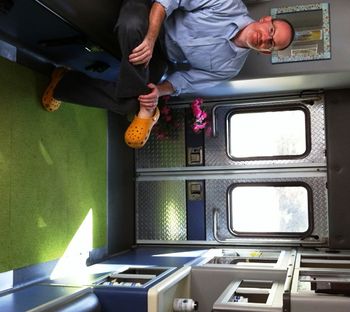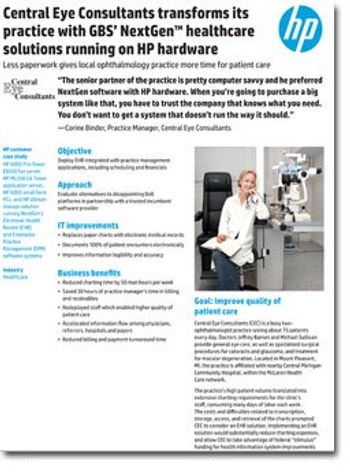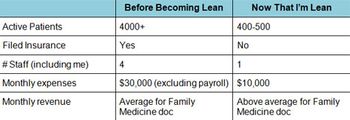
How do you nurture your practice and your new prospective patients at the same time? Here's a four-step method to guide you.

How do you nurture your practice and your new prospective patients at the same time? Here's a four-step method to guide you.

While I think we all can agree that there is room for reforming and tweaking medical education …I do not agree that slicing off a year of residency training is a good idea.

You are in charge of what types of patients you attract and having clear goals makes this process flow more easily and simply.

Spring is in the air, so let's talk about how your medical practice can blossom after you've prepared it for growth.

Instead of trying to understand all of the financial markers each month, why not select one number to focus on and use that number as your barometer for your practice.

I think it is time you started being honest with yourself about your profession and your daily choices in your practice.

The idea here is to get yourself outside of the locked-in type of thinking that only sees your practice as a “health insurance” provider of services.

Here are some reasonable integrative medicine ancillary services that can greatly impact the bottom line at your medical practice.

I believe that true healthcare reform will come about only when integrative and alternative medicine is embraced, not kept on the sidelines where it resides today.

Changing your medical practice is completely up to you and not the politicians or any other medical group.

I think for better and for worse, we, as physicians, are holding ourselves back, not allowing ourselves to truly reach for what we desire with our practices.

The question for 2012 is: What will you choose to focus on in your practice?

Converting the back of an ambulance to a modern office now allows me to see my patients at their home or work in my mobile office.

If you truly want to have a thriving practice … then you have to shift your mentality and attitude about how your practice is run.

In order to become the lean practice you need to help move medicine in a better direction, you have to start thinking as if you are working by yourself.

Here’s the story of how one physician was successfully able to create a practice so lean and efficient that he runs and manages it completely by himself.

A critical element missing from conversations on healthcare reform is how physicians are actually going to improve patient satisfaction.

Prescription medicines are certainly wonderful tools when used appropriately. But the reality is, no medicine defines any patient’s health.

I think most of us yearn for having more freedom both financially and clinically with our patients. Enter direct pay practice models.

I think there are areas in our medical practices that we should practice and things we should not.

Now that you understand how some hormones operate on the individual and practice level, let’s discuss balance and optimization.

I think practices act a lot like individuals and therefore are influenced in the same manner as hormones influence us.

In order to truly bring about the progress we need in medicine, it is time we started approaching how we practice medicine in an innovative way.

"Flu shots" represent much more than just vaccination against viral influenza. …they call into question germ theory, healthcare delivery, and even politics.

Staying lean as a business is important, but reaching for what you want and not running from what you don't want is even more important.

Without having an image of where we want or even think medicine is going, it is difficult to make progress.

When we neglect the emotional aspects to how our patients feel, we are missing out on opportunities to connect, interact, and inspire.

All three of my ideas are not radical to all, but I think everyone will find at least one of these ideas is a way to take you to that opposite extreme.

Modern medicine is broken. There are too many sick patients and far too many unhappy doctors to think otherwise.

In the hospital system alone, mistakes are commonplace due to all of the specific orders that need to be followed by so many different people at different times. On the outpatient side, fewer errors occur - there are usually less people in the order chain and the errors tend to be less serious.

Published: June 30th 2011 | Updated:

Published: July 6th 2011 | Updated:

Published: July 14th 2011 | Updated:

Published: July 21st 2011 | Updated:

Published: July 28th 2011 | Updated:

Published: August 4th 2011 | Updated: